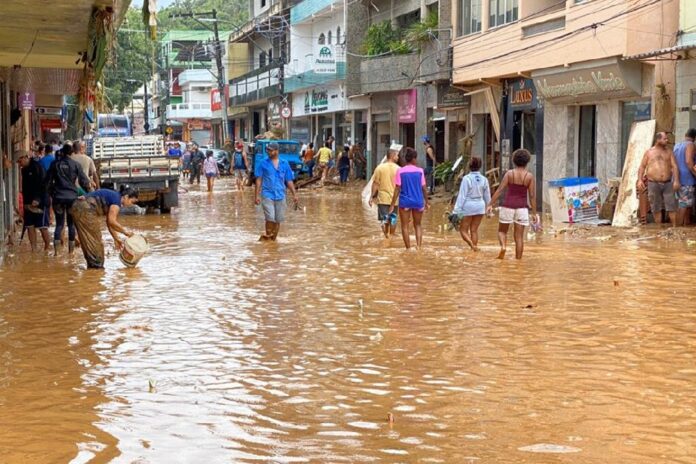The reality of climate change’s repercussions is starting to sink in, and many regions of the world are already seeing its devastating effects. It has become clear that we must act now if we are to prevent further destruction of the planet from taking place, as evidenced by the heavy rain, floods, and landslides in Brazil, the destruction brought on by Cyclone Gabrielle in New Zealand, and now the impending impact of Cyclone Freddy in Madagascar.
At least 36 people have perished in southeast Brazil as a result of heavy rains that over the weekend caused landslides and flash flooding in coastal So Paulo state. Even for this region, two feet of rain fell in certain places in just twenty-four hours, and meteorologists have labeled this an unparalleled phenomenon. Sadly, similar tales can be found all throughout the world as extreme weather events increase in frequency as a result of rising temperatures.
In New Zealand, Prime Minister Chris Hipkins has attributed Cyclone Gabrielle’s past week’s widespread devastation, which left hundreds missing and eleven people dead, to climate change. This catastrophe, which is being regarded as New Zealand’s biggest natural disaster of the century, emphasizes the catastrophic effects that global warming can have on weak communities all over the world.
One month after Tropical Storm David claimed thirty lives throughout the country, Madagascar is now preparing for what may be yet another devastating storm as Cyclone Freddy threatens its coastline. Freddy’s prolonged existence—cyclones often pass within days, but Freddy has already been hanging on the coast of Madagascar for almost two weeks—is what makes it such a remarkable cyclone. This demonstrates the harm that climate change may do to weather patterns.
If we want to stop other catastrophes like these, we need to act right away. Although it may seem difficult, there are things we can all do in our daily lives to lessen our carbon footprints and contribute to keeping the earth from further harm. When done collectively, small changes like cutting back on transportation and energy use can have a significant impact. Also, increasing public knowledge of how climate change affects all living things can help spur action to combat this existential issue.



